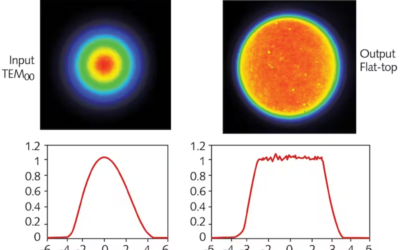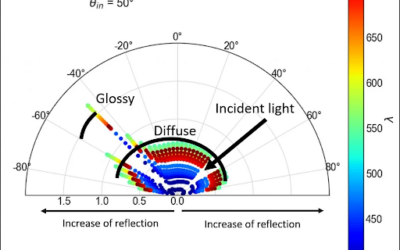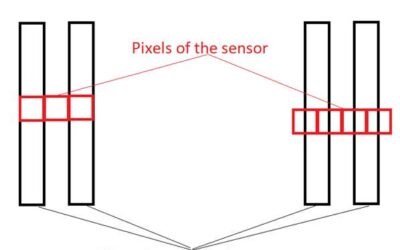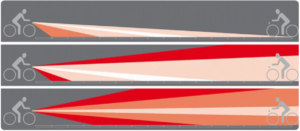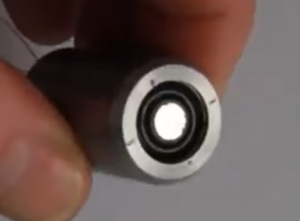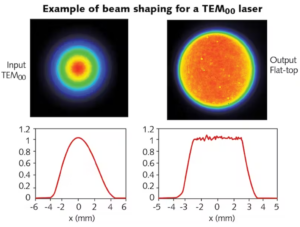Field lenses are a basic element in optical design, to understand their role in an optical system it’s important first to understand the definitions of Field-of-View (FOV). Generally speaking, FOV is the maximum size of an object that an optical system can create an image of. The FOV is related to the size of the sensor (imagine a digital sensor in a camera, or an eyepiece in a microscope/telescope), and the focal length of the lens. The larger the sensor is, the larger the FOV. Similarly for a given sensor size, the shorter the focal length of the lens, the larger the FOV. This is shown in Figure 1.
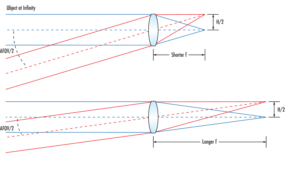
Figure 1. Increase of FOV by reducing focal length. Image from EdmundOptics.
However, it is possible to place a lens near the focal plane of the objective lens. This lens can help us reduce the size of the detector for a given FOV. This lens is called the Field Lens. If placed exactly at the focal plane of the objective lens it creates no magnification (Figure 2). It can also be formed by several lenses to correct for aberrations.

Figure 2. Use of field lens to reduce sensor size. Image from M. Riedl, Optical Design Fundamentals for Infrared Systems, Second Edition, SPIE Press, Bellingham, WA (2001).
Field Lens Design Considerations
1.- When designing a field lens for a microscope, be aware that most optical sensors (CCD, CMOS) are rectangular. Meaning that the camera FOV needs to fit inside the objective lens FOV. A way to do this is to make the diagonal of the camera sensor equal to the diameter of the FOV of the objective lens. As a consequence some of the image capture by the objective lens will be lost.
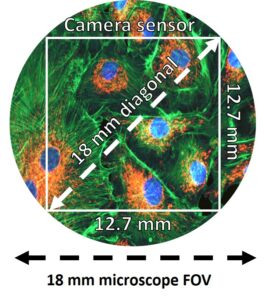
Figure 3. Camera sensor smaller than the FOV of the objective FOV.
2.- A light condenser is an application of field lenses. In those cases the design recommendation if for the FOV of the condenser to match the numerical aperture of the objective lens. The numerical aperture of the objective lens should never be smaller than the FOV of the condenser or there could be considerable degradation on the resolution and image quality.
3.- Be careful when handling field lens. Because they are placed at a field point (focused plane), any scratch, or imperfection will be shown in the image.
